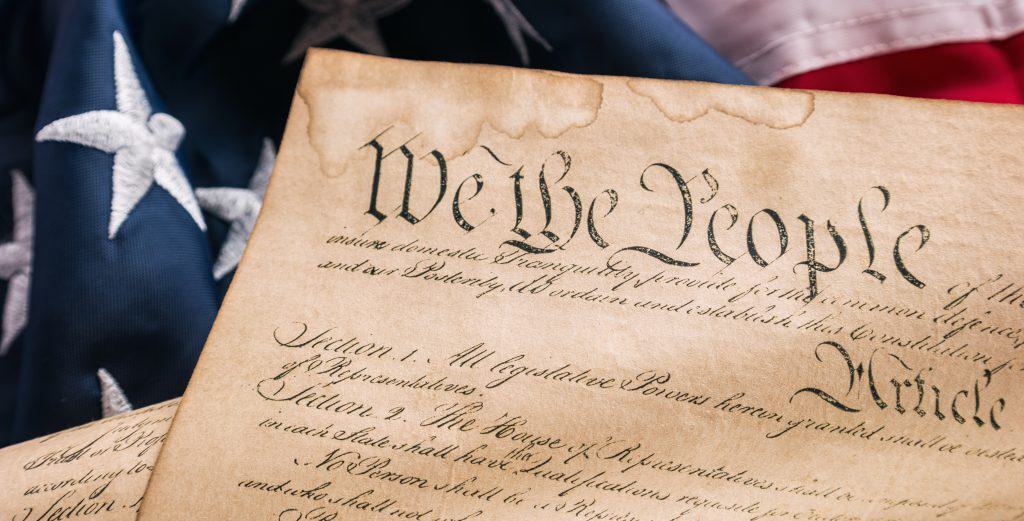A little while ago, I had the honor of speaking to Bryan Dawson’s church on a Wednesday night. His pastor graciously invited me to come talk about some of the key U.S. Supreme Court decisions from this past term. Those decisions addressed abortion, religious freedom and gun rights. They wanted me to talk about them not only from a constitutional perspective but also from a biblical worldview. For the introduction, I talked about how what is happening in the legal world is a lot like what happened in the Protestant Reformation.
In my handout, I even took a picture of Martin Luther and put it next to a picture of Clarence Thomas. My wife took a picture of it, put it on Facebook, and said, “This is what happens when my husband preaches.” Guilty as charged.
One of the central points of the Reformation was that the church was not going by what the Bible taught but instead by what the church had taught about the Bible. To be sure, the church’s job is to expound the Bible and teach it to the congregation, so what the Bible says and what the church teaches may often line up. But in instances where the Bible and church teaching cannot be reconciled, then the Bible trumps what the church says.
Why? Because if there’s a conflict between what the text says and what people say about the text, then the text wins.
This was the cardinal principle behind sola scriptura in the theological world, and it is also the cardinal principle behind originalism in the legal world.
If you don’t know what originalism is, it’s the view that the Constitution should be interpreted according to its words as they were understood at the time of its ratification. Just as the Reformers believed the church was bound by what the Scripture said and was not at liberty to change it, so originalists believe that judges are bound by what the Constitution says and are not at liberty to change it.
For most of the 20th century, the legal field was dominated by judges and lawyers who believed that the Constitution changed with the times, even though the words themselves did not change. Once judges started disregarding the Constitution, they would entrench their erroneous views in bad precedent. Just like the church stopped making its decisions by Scripture and instead made its decisions by tradition, so American judges stopped following the Constitution but followed their own precedents instead.
But fortunately, thanks especially to President Trump’s appointments to the Supreme Court, we now have a Court that cares more about what the Constitution actually says and means than about what bad precedent says. This is displayed in the Supreme Court’s decisions this term in Dobbs (which overruled Roe v. Wade), Kennedy v. Bremerton School District (which overruled decades of bad Establishment Clause jurisprudence) and New York State Rifle & Pistol Ass’n v. Bruen (which upheld the right to bear arms in an amazing display of originalism at its finest). Thus, in 2022, originalism went from a minority view in the legal community to being the majority view on the Supreme Court.
The irony is not lost on me that the Court’s originalists are Catholics and I’m comparing originalism to the Reformation. My case here for originalism is not meant to be anti-Catholic. On the contrary, I am simply arguing that the people who should understand originalism the best are those who believe in sola scriptura.
There are some differences between biblical interpretation and constitutional interpretation that skeptics may point out. For instance, the Bible is God-breathed, and the Constitution, beautifully written as it is, is not. The Bible is inerrant, whereas the Constitution, enlightened as it is, cannot claim inerrancy. Nevertheless, there is a common theme: in both cases, the interpreter is duty-bound to yield to what the text says and is not at liberty to change it.
One might also ask how an evangelical should respond if the Constitution ever contradicted the Law of God. But fortunately, thanks to the amendments abolishing our original sins of slavery and racial discrimination, I believe that our Constitution does not have that problem today. Thus, while I agree with Peter that we must obey God rather than man if forced to choose, our Constitution does not present us with that dilemma. Now there are bad precedents that contradict the Law of God and the Constitution. But since the Constitution comports with the Law of God, the solution is to overrule bad precedents that are contrary to the Constitution, not to rebel against the Constitution itself.
Those who believe in sola scriptura should also be the strongest proponents of sola constitution—i.e. originalism. We should keep that in mind as we think about the judiciary.
Matt Clark is the President of the Alabama Center for Law and Liberty, a conservative nonprofit law firm that fights for limited government, free markets, and strong families in the courts. His column appears every Friday in 1819 News. The opinions expressed in this column are those of the author. The views and opinions expressed here are those of the author and do not necessarily reflect the policy or position of 1819 News. To comment, please send an email with your name and contact information to Commentary@1819News.com.
Don’t miss out! Subscribe to our newsletter and get our top stories every weekday morning.










